 Authors:
Authors:
Saadawi, Ahmed
Translated by:
Geležauskas, Matas
Translated from:
English
Published on:
2018
“Frankenstein in Baghdad” is a book that combines the cruel reality of everyday life in Iraq and supernatural fiction using the motifs of a classic horror story.
The story takes place in US-occupied Baghdad, where every day is marked by explosions, shootings, wreckages and corpses. Hadi, a junk-dealer living here, wanders the streets of the town. From the streets covered with ruins and debris, he collects the scattered body parts of bomb victims, brings it home and stitches into one corpse. He wants for the authorities to recognize individual parts as humans and properly bury them. More
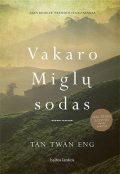 Authors:
Authors:
Tan, Twan Eng
Translated by:
Raudonikienė, Eglė
Translated from:
English
Published on:
2018
The protagonist of the novel, Yun Ling Teoh, is a Chinese lawyer who studied in the West and was one of the first women to work at Malaysia’s Supreme Court. Due to progressing senile dementia, she decides to end her career and return to a tea plantation surrounded by the jungle. While reminiscing, she goes back to the years of World War II, where she experienced the greatest horror of her life, and tells her story about an extraordinary experience while learning the art of Japanese gardening. The narrative of the book consists of three time slots. Present time, that is the in the late 1980s, when Yun Ling writes down her memories as her illness worsens to preserve them. The second period of time is after the Second World War, when she, as a young prosecutor, enraged that the British Malay leaders did little to help the victims of war crimes in Japan, comes to the mountains to learn the art of gardening. And finally, she opens up about the third, most painful part of life, telling what exactly happened to her and her sister in the prison camp. More
 Authors:
Authors:
Kurniawan, Eka
Translated by:
Kelerienė, Vaida
Translated from:
English
Published on:
2018
“Beauty Is a Wound” is an extraordinary story of a beauty, her family and those around her, full of the author’s volatile imagination. The book not only stands out for its extraordinary style of magical realism, but also for elements of Indonesian history that will broaden a readers’ knowledge of the country.
Devi Aju rose from the grave, where she had been resting for 21 years. Such an unusual and startling beginning of the book immerses the reader in the mysterious world of Indonesia from the very first pages. During her life, Devi Aju gave birth to four daughters: three extraordinary beauties and one terribly ugly. But most of all, she rejoices at the youngest because before her birth, Devi Aju prayed for the baby to have the worst look possible. And the motto of the novel: “there is no more terrible curse than to give birth to a beautiful girl in the world of men who are more crazy than ruminating dogs” perfectly justifies every action Devi Aju takes in the story. Beauty is not a blessing, even though it is coveted, at the end, it remains desecrated or even cursed. Devi Aju is the most beautiful and coveted prostitute in all of Halimunda. This is where the main action of the story revolves, around the daughters, their beauty, love, suffering and their husbands – sometimes cruel and ruthless, but most of the time, just looking to fulfill their sexual desires. More
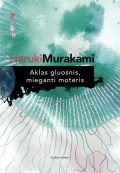 Authors:
Authors:
Murakami, Haruki
Translated by:
Čepulionytė, Gabija; Ignotienė, Jurgita
Translated from:
Japanese
Published on:
2018
“You can create a short story from the smallest detail – it’s like jazz improvisation, where the story takes me where it wants to go.”
Haruki Murakami’s mastery was revealed in a new light in which the details and small, almost visible strokes once again allowed the reader to stop, exhale and simply enjoy the masterpiece.
“The Blind Willow, a Sleeping Woman” is a collection of twenty-four stories written between 1980 and 2005. period. This work not only allows you to enjoy great literature, but also reveals how the writer’s tone changes over the years, what colors become brighter, and what fades. The collection generously expresses Murakami’s mastery of the writing form. From surrealism to everyday life, it demonstrates the ability to portray human experience in a variety of ways that can serve as instructive, compelling, or simply ridicule. More
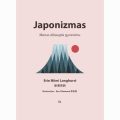 Authors:
Authors:
Longhurst, Erin Niimi
Translated by:
Puzauskaitė, Agnė
Translated from:
English
Published on:
2018
This book is divided into three chapters: Kokoro (Heart and Mind; 心), Karada (Body; 体), Shukanka (Habit Formation; 習慣 化). In the first chapter, the author talks about how one can discover his “ikigai” i.e. goal which leads the person forward. Every person’s “Ikigai” is different. It can be: work, love, nature, family and self-care. You may have already discovered your “Ikigai” but you haven’t realized it yet. It’s like fuel for a human motor without which it’s hard to get your feet out of bed in the morning. What follows is wabi-sabi, the ability to come to terms with the turmoil and temporality of life. The author herself mentions that of all the concepts mentioned in the book, this is the most difficult to explain. The original meaning of the word “wabi” is a sense of distance and loneliness, as well as the paradoxical beauty of imperfection. Meanwhile, “sabi” has several meanings: twisted, bent. But most of the time, it means the beauty of aging. So wabi-sabi is what is not complete, not perfect, and will not last forever. The first chapter is completed by More
 Authors:
Authors:
Kang, Han
Translated by:
Šiaučiūnas-Kačinskas, Martynas
Translated from:
Korean
Published on:
2017
At first glance book ‘The Vegetarian’ may impose some skeptical thoughts to the reader, but with every page you read through it becomes increasingly clear that this is not a simple story about a woman who does not eat meat. The book is psychologically difficult with such topics as domestic violence and also philosophically challenging, raising questions about the boundaries of human virtue and lust. The extremely grotesque novel forces the reader to contemplate about various More
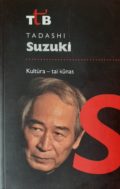 Authors:
Authors:
Suzuki, Tadashi
Translated by:
Savickienė, Kristina
Translated from:
English
Published on:
2017
“Culture is the Body: The Theatre Writings of Tadashi Suzuki” is a book about both Western world and Japanese theatre base and traditions. Tadashi Suzuki, a director who analyzes different theatre genres and forms, compares traditional Japanese Noh and Kabuki theatre to Greek dramas, Chekhov’s works and modern dramaturgy. It is important to notice how the author is trying to portray the actual work and mindset of a director and natural acting. How directors work and interpret text and turn it into a play. More
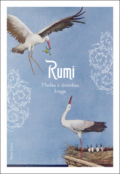 Authors:
Authors:
Rumi, Jalal ad-Din Muhammad
Translated by:
Ališanka, Eugenijus
Translated from:
English
Published on:
2017
Poet of the Middle Ages, the Sufi mystic of Rumi (1207-1273) is one of the most popular poets in the Western world. There is nothing new that the name of Rumi in Lithuania was heard at least for those who were interested in Oriental culture and poetry, but his work is still a little known. Therefore, it’s urgent to introduce a poetry book: Rumi’s little book of life: The Garden of the Soul, the Heart, and the Spirit – to collect translations from various works of Rumi and to allow the More
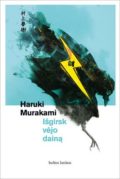 Authors:
Authors:
Murakami, Haruki
Translated by:
Čepulionytė, Gabija
Translated from:
Japanese
Published on:
2017
This novel is about a 21 year old guy, who studies biology and came back home for summer holidays. Having a lot of free time leads narrator and his old friend called “Rat“ spending a big portion of it in J‘s bar. There they just drink beer and smoke. The main character of the novel is quite a silent guy but he ponders about many different things. Most of his contemplations revolve around his three ex girlfriends, strange accidents, carnal love and his new friend who has lost one More
 Authors:
Authors:
Shafak, Elif
Translated by:
Žalytė-Steiblienė, Danguolė
Translated from:
English
Published on:
2017
Elif Shafak is titled as one of the most famous and prominent writers in Turkey. The author of the book “The Architect’s apprentice” explicitly and vividly describes various places, scents and people of Turkey and India. The book also mentions life experiences and hardships of the main characters. All of this helps to delve into the ages of 16th century’s Ottoman Empire. According to the author, the idea of the book started developing quite spontaneously: whilst driving through More
 Authors:
Saadawi, Ahmed
Authors:
Saadawi, Ahmed 
 Authors:
Tan, Twan Eng
Authors:
Tan, Twan Eng  Authors:
Kurniawan, Eka
Authors:
Kurniawan, Eka  Authors:
Murakami, Haruki
Authors:
Murakami, Haruki  Authors:
Longhurst, Erin Niimi
Authors:
Longhurst, Erin Niimi  Authors:
Kang, Han
Authors:
Kang, Han  Authors:
Suzuki, Tadashi
Authors:
Suzuki, Tadashi  Authors:
Rumi, Jalal ad-Din Muhammad
Authors:
Rumi, Jalal ad-Din Muhammad  Authors:
Murakami, Haruki
Authors:
Murakami, Haruki  Authors:
Shafak, Elif
Authors:
Shafak, Elif